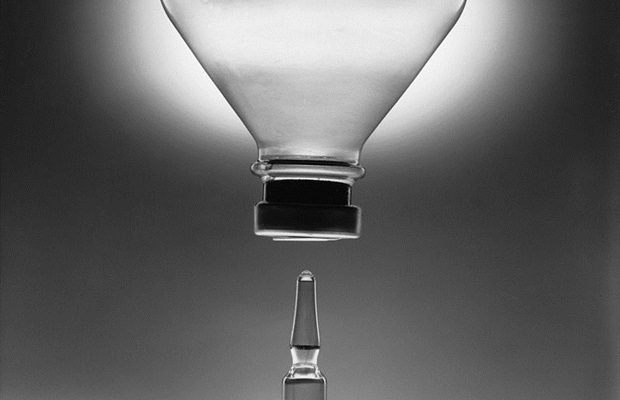Study shows the potential of a game-changing drug to treat upper urinary tract urothelial cancers
A team from 15 U.S. medical centers led by UT Southwestern Simmons Cancer Center researchers has performed the first analysis of a potentially game-changing drug to treat upper urinary tract urothelial cancers. Their findings, published in Urologic Oncology, showcase how the treatment is being used and its potential to save patients from the ordeal of undergoing kidney removal and potential lifelong dialysis.
This drug, UGN-101, was approved based on a trial with a limited number of patients. Our new study is the first post-market analysis to see how doctors are using this drug in routine practice and what their patient outcomes are."
Solomon Woldu, M.D., Assistant Professor of Urology, who co-led the study with Yair Lotan, M.D., Professor of Urology. Both are members of UTSW's Harold C. Simmons Comprehensive Cancer Center
Dr. Woldu explained that UGN-101, also known by the brand name Jelmyto, is a unique reformulation of mitomycin, a chemotherapy long used to treat bladder cancers. However, mitomycin has proved ineffective for treating cancer in the upper urinary tract, including the ureters and kidneys, since it flows out of the upper urinary tract and has limited contact time with tumors.
Without an effective chemotherapy for these tumors, Dr. Woldu said, patients typically must undergo removal of the diseased kidneys and ureters, which can necessitate dialysis in patients with pre-existing kidney impairment.
To solve this problem, UGN-101 incorporates mitomycin into a gel that is liquid at cold temperature but thickens at body temperature. Thus, UGN-101 can remain in the upper urinary tract long enough to kill tumor cells and gradually breaks down over time, Dr. Woldu said.
To better understand the use of this drug, which received approval from the Food and Drug Administration two years ago, Drs. Woldu and Lotan worked with colleagues at 15 medical centers that treat a high volume of patients with upper tract urothelial cancers. These cancers represent about 5% to 10% of all urinary cancers.
The team gathered data on 132 patients treated for 136 cancers (four had bilateral disease). Three-quarters of the patients received an induction course of UGN-101 that involved six weekly doses, and 27% received monthly maintenance doses. About 43% of the patients had tumors that had already been ablated and were seeking UGN-101 treatment to prevent recurrence, which is common for these cancers.
Approximately three months after the initial course, about 69% of patients whose tumors had been ablated before treatment had no recurrence. In those with low-grade tumors measuring less than 1.5 centimeters, 70% were cleared of tumors. Even among patients with tumors larger than 3 centimeters, tumors disappeared in about a quarter of them.
About 15% developed urinary tract infections during treatment, a common side effect of this drug, and about a quarter developed ureteral stenosis, a narrowing of the ureters that can block urine flow from the kidneys to the bladder. Although these are significant, Dr. Woldu said, they pale in comparison to losing a kidney and potentially needing dialysis. Only five patients needed surgery to remove their diseased kidney.
"Patients with upper tract urothelial cancers are often left with the choice of lifelong dialysis or untreated cancers," Dr. Woldu said. "This drug has enormous potential to save them from either of these fates."
Drs. Woldu and Lotan are consultants for UroGen Pharma Ltd., which manufactures UGN-101.
Dr. Lotan holds the Jane and John Justin Distinguished Chair in Urology, in Honor of Claus G. Roehrborn, M.D.
UT Southwestern Medical Center
Woldu, S.L., et al. (2022) Early experience with UGN-101 for the treatment of upper tract urothelial cancer – A multicenter evaluation of practice patterns and outcomes. Urologic Oncology. doi.org/10.1016/j.urolonc.2022.10.029.
Posted in: Drug Trial News | Medical Condition News
Tags: Bladder, Cancer, Chemotherapy, Cold, Dialysis, Education, Food, Kidney, Medicine, Oncology, Research, Stenosis, Surgery, Tumor, Urology
Source: Read Full Article
